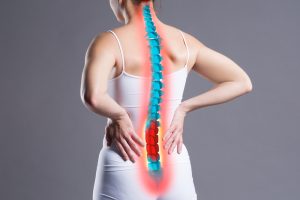
What is Degenerative Disc Disease?
Degenerative Disc Disease (DDD) is a prevalent condition that affects millions of people worldwide. Although the name may sound alarming, it’s not a disease in the traditional sense. Instead, it refers to a natural and age-related deterioration of the intervertebral discs in the spine. Let’s explore the causes, symptoms, diagnosis, and treatment options associated with Degenerative Disc Disease.
What are Intervertebral Discs?
Intervertebral discs are soft, gel-like cushions located between the vertebrae in the spine. They play a vital role in providing flexibility, shock absorption, and stability to the spine. Each disc consists of a tough outer layer called the annulus fibrosus and a jelly-like inner core called the nucleus pulposus.
Understanding Degenerative Disc Disease
Degenerative Disc Disease occurs when the intervertebral discs undergo wear and tear over time. This condition is typically associated with the aging process, although it can also be influenced by various factors, including genetics, lifestyle, and injuries. As the discs degenerate, they lose their ability to function optimally, leading to a range of symptoms and discomfort.
Causes and Risk Factors
While aging is the primary cause of Degenerative Disc Disease, several factors can contribute to its development. These include:
Natural aging process
As we age, the discs gradually lose water content, becoming less flexible and more prone to damage.
Genetics
Certain genetic factors can make individuals more susceptible to disc degeneration.
Occupation and lifestyle
Jobs involving repetitive movements, heavy lifting, or prolonged sitting can increase the risk of DDD. Smoking, poor nutrition, and obesity are also considered risk factors.
Spinal injuries
Trauma or injuries to the spine, such as herniated discs or fractures, can accelerate disc degeneration.
Symptoms
Degenerative Disc Disease manifests differently in each individual, and symptoms can vary in severity. Common signs include:
- Chronic back pain
- Neck pain
- Stiffness
- Numbness and tingling
- Weakness
Diagnosis
Diagnosing Degenerative Disc Disease involves a comprehensive evaluation of the patient’s medical history, physical examination, and imaging tests. X-rays, magnetic resonance imaging (MRI), or computed tomography (CT) scans can help visualize the condition of the discs, identify any abnormalities, and rule out other underlying causes of symptoms.
Treatment Options
Treatment for Degenerative Disc Disease focuses on managing symptoms, improving quality of life, and preventing further degeneration. Common approaches include:
Pain Management
Over-the-counter pain relievers, such as nonsteroidal anti-inflammatory drugs (NSAIDs), may provide relief. In more severe cases, prescription medications or epidural steroid injections may be recommended.
Physical Therapy
Specific exercises and stretching routines can strengthen the surrounding muscles, increase flexibility, and improve overall spinal function.
Lifestyle Modifications
Maintaining a healthy weight, practicing good posture, and engaging in regular low-impact exercises can help alleviate symptoms and slow down disc degeneration.
Surgical intervention
In rare cases where conservative treatments fail to provide relief, surgical options like spinal fusion or artificial disc replacement may be considered. While surgical procedures can be effective in certain cases, they also come with inherent risks and potential complications.
IntraDiscNutrosis®
Unlike traditional surgical interventions or epidural injections that often fail to address the root cause, IntraDiscNutrosis® offers a non-invasive alternative. It repairs your disc’s self-healing mechanism, enabling your body to heal naturally. This groundbreaking solution allows you to bypass invasive procedures, with their potential side effects and lengthy recovery periods, while providing a more effective and lasting outcome. The focus on addressing the underlying issue sets IntraDiscNutrosis® apart from treatments that merely manage symptoms.
While degenerative disc disease cannot be completely reversed, early diagnosis, proactive management, and lifestyle modifications can significantly reduce symptoms and improve overall well-being. If you experience chronic back or neck pain. If you’re seeking a non-invasive solution to disc-related problems, The Nerve & Disc Institute’s innovative program may be the answer you’ve been looking for.